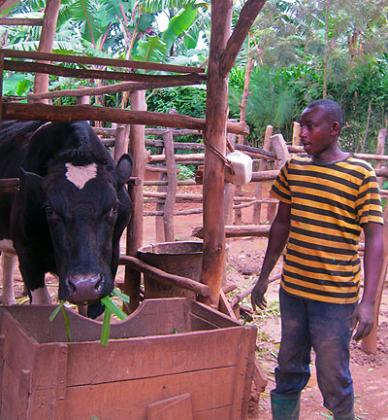Editor, REFERENCE IS made to the article by Amb. Ernest Rwamucyo (Rwanda’s High Commissioner to India), “Ndi Umunyarwanda and the Rwandan nation and identity”, published in The New Times issue of February 25.


Editor,
REFERENCE IS made to the article by Amb. Ernest Rwamucyo (Rwanda’s High Commissioner to India), "Ndi Umunyarwanda and the Rwandan nation and identity”, published in The New Times issue of February 25.
I do commend the idea of de-ethnicisation but I also think that the next step should be to ensure that all Rwandans have equal access to basic rights such as nutrition, education, housing and health.
While generally there is no discrimination with regard to accessing these services, the economic gap between the rich and the poor is naturally making it difficult for some to have access to them.
Please let’s work collectively to give some flesh to the very individualised or individualistic theme of ‘Ndi Umunyarwanda’. With the relentless efforts of the Government of Rwanda, I have no doubt that those issues will be addressed accordingly.
Kabondo, Rwanda
*******************************************
Editor,
I THANK Mr Kabondo for the comments and I would like to assure him that what Rwanda has done to ensure universal access to education (over 96% enrollment in primary school, free education up to nine years of basic education), universal access to health care with health insurance coverage for over 95% of the population, social protection through programmes like One-Cow-per-Family (Girinka) scheme, Ubudehe and other pro-poor interventions, are successfully reducing poverty and curbing inequality.
It’s through these government’s initiatives that helped lift one million Rwandans out of poverty between 2007 and 2012.
Indeed the Third Integrated Household Living Conditions (EICV 3, or Enquête Intégrale sur les Conditions de Vie des Ménages in French) survey, conducted by the National Institute of Statistics of Rwanda, confirmed that economic growth in Rwanda is leading to poverty reduction with poverty reducing faster in rural areas than urban areas; while inequality is reducing as measured by a declining Gini coefficient.
This is a strong foundation for Ndi Umunyarwanda and a shared destiny for Rwandans. There are a lot of reliable and verifiable facts and figures to demonstrate that there are good policies being implemented to curb inequality and create opportunity for all Rwandans. What we have to do is help our government to achieve its welfare goals.
Charles Paul, Dhaka, Bangladesh


